WMIF MAIN SITE
2025 Event Site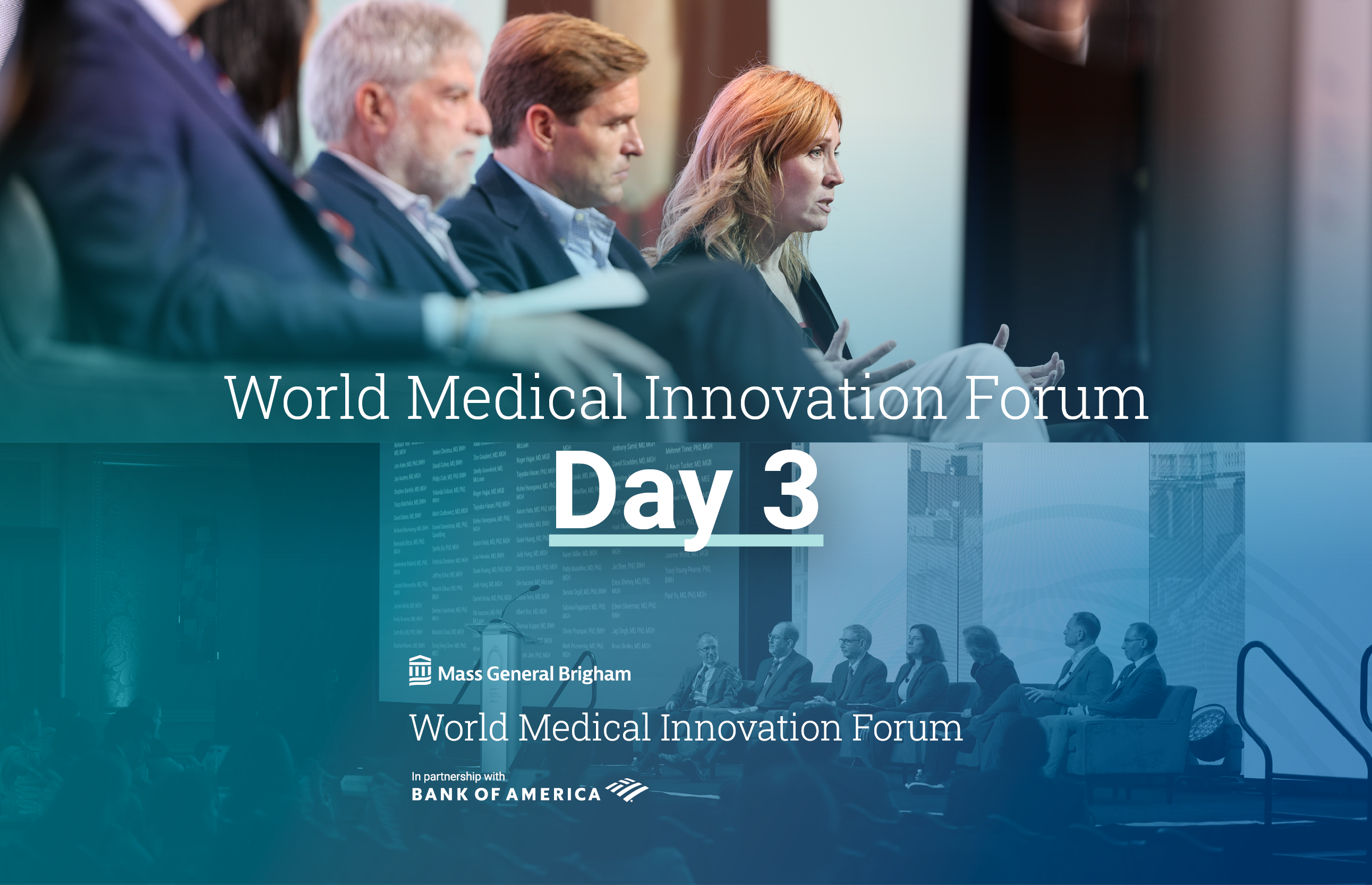
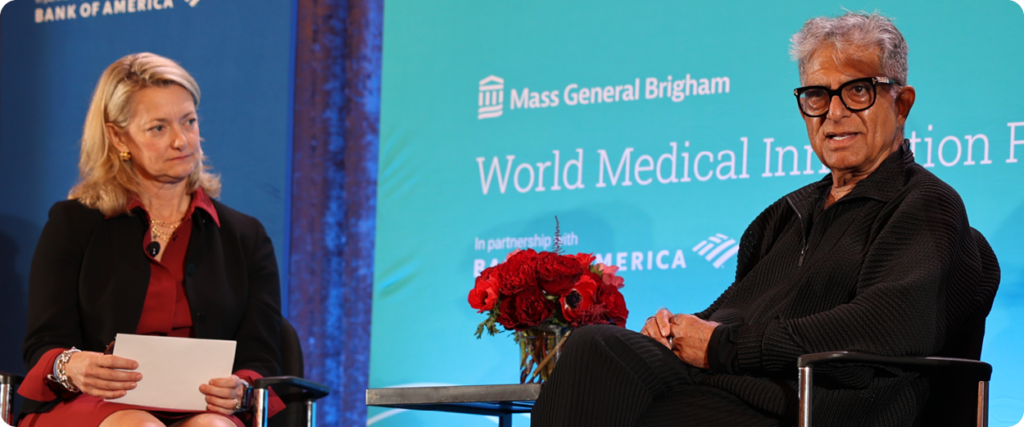
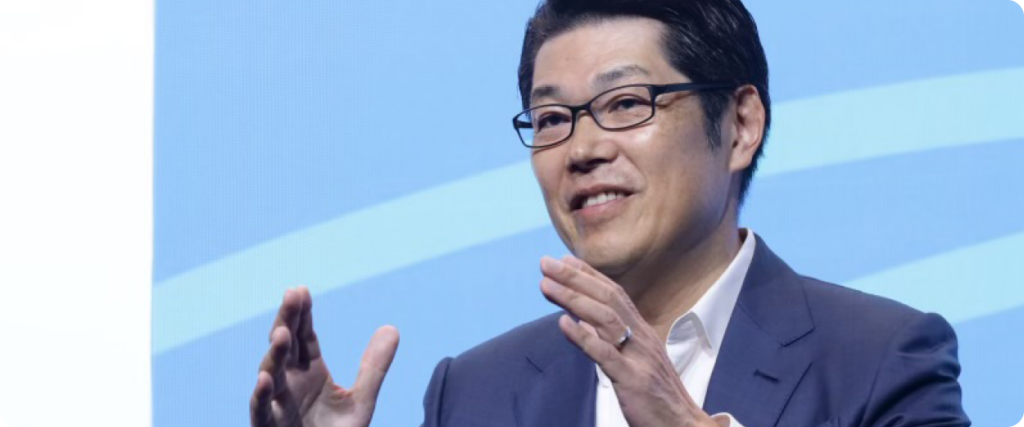
Tadaaki Taniguchi MD, PhD, Astellas Chief Medical Officer discussed pipeline priorities with David Ting MD, Associate Clinical Director for Innovation at Mass General Cancer Center and Jason Zemansky PhD, SMid-Cap Biotech Analyst, BofA Global Research.
“You cannot actually do everything in one single modality,” Taniguchi stated, emphasizing the importance of a forward-looking approach in drug development. “You must think about the future and how this medicine is going to work when you bring it to the clinic. All the biology is so important to really understand what we have to start with.”
What’s exciting is seeing how patients will benefit from what Astellas is doing. “We always need to look at what is the best combination… what is the best treatment. “It’s so important for us to really understand that the product will be viable, and at the same time will bring the best outcome for the patient’s life — how they and their families will benefit from our treatments.”
Collaboration in innovation is crucial and doing so requires working together and optimizing partnerships. “You cannot innovate by yourself—even if you are the best, you cannot do it on your own,” Taniguchi explained. “It’s not easy, but this is the only way we can actually get these very important medicines to the patient as quickly as possible.”
Watch the session: Fireside chat with Tadaaki Taniguchi MD, PhD.
Moderators Cynthia Lemere PhD, Scientist, Ann Romney Center for Neurologic Diseases, Brigham and Women’s Hospital; Professor of Neurology, Harvard Medical School, and Tazeen Ahmad, SMid-Cap Biotech Analyst, BofA Global Research, led a wide ranging discussion on how the immune system could unlock much needed treatments.
Jo Viney PhD, Co-Founder, President & CEO, Seismic Therapeutic, highlighted the growing interest in immunity’s role beyond infection protection, noting its impact on diseases such as lupus, cardiac disorders, and neurologic conditions. “We are gaining a deeper understanding of how immune cells contribute to disease,” Viney explained.
Jeff Wilkins MD, Chief Medical Officer of Abcuro, pointed out that researchers are now examining the connection between inflammatory disease and conditions like obesity, heart disease, and Alzheimer’s.
Advances in technology are revolutionizing treatment approaches, allowing for targeted therapies that focus on specific cells and pathways beyond broad-spectrum treatments like corticosteroids. “We’ve moved beyond the ‘hammer approach,'” said Wilkins. Niranjana Nagarajan, PhD, Entrepreneur in Residence, Mass General Brigham Ventures, echoed this sentiment: “We now have tools that make previously inconceivable breakthroughs possible.” Viney agreed, adding, “We are in an era where multiple modalities can selectively target and inhibit disease-causing cells.”
Looking ahead, Wilkins emphasized the ongoing progress in identifying targets for treatment. “There’s been a lot of hard work, and we’ve learned from the setbacks. The scope of what’s possible is truly inspiring,” he said.
Watch the session: The Disruptors: The Role of Pathway Inhibition in Inflammation and Inflammatory Diseases
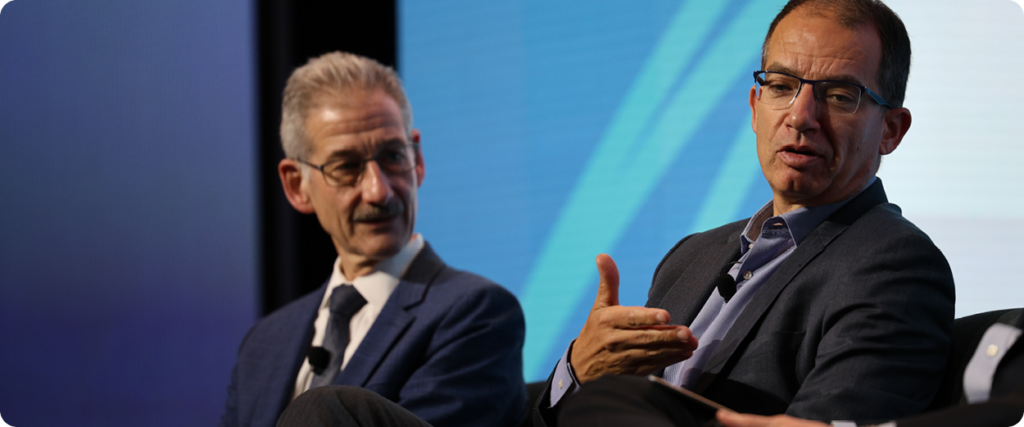
Moderna CEO Stéphane Bancel discussed COVID, vaccines, and the company’s future developments. “COVID was never in anyone’s five-year plan,” he noted. He highlighted upcoming innovations, including long COVID treatments and a combination of COVID and flu vaccines. “We are committed to continuous innovation,” he said. “COVID and long COVID continue to affect people, and education is key to increasing vaccination rates and improving public health.”
Watch Bancel’s fireside chat.
Following his fireside, Bancel, participated in a 1:1 interview where he discussed his vision for technological advances that will lead to finding cancers sooner by way of yearly routine blood draws, giving rise to successful treatments. Treatments for autoimmune disease, he hypothesizes, will recreate balance in the immune system. For rare diseases, there will be ways to instruct the body to make missing proteins, causes for these conditions. “There are lots of things coming,” he says optimistically about what patients will realize. “You never want to bet against scientists because they move the world forward.”
Watch the 1:1 interview with Stéphane Bancel.
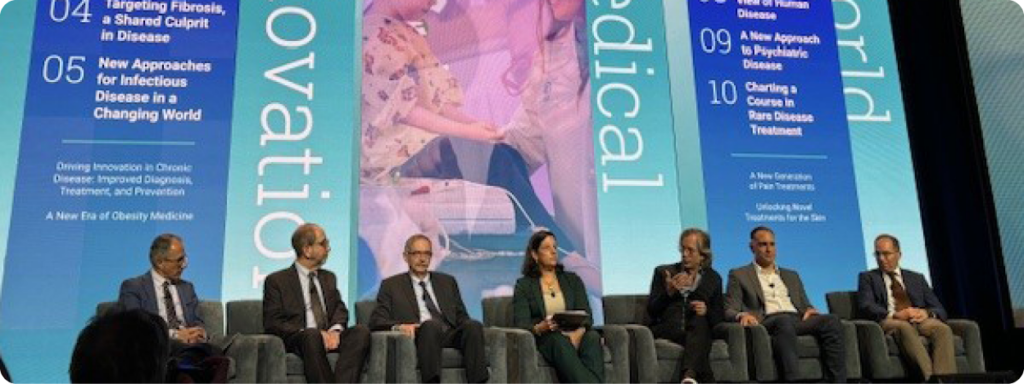
An unprecedented engagement of more than 100 MGB Harvard Medical School faculty produced a fresh take on care gaps awaiting innovation. A panel of clinicians who also are research, provider, industry and investment leaders discussed the scope, impact, and potential drivers for addressing these needs. Aging, brain health and cancer treatments are the top three unmet clinical needs today.
Top Ten Unmet Needs:
Panel co-chairs José Florez MD, PhD, Physician-in-Chief and Co-Chair, Department of Medicine, Massachusetts General Hospital; Jackson Professor of Clinical Medicine, Harvard Medical School, and Bruce Levy MD, Physician-In-Chief and Co-Chair, Department of Medicine, Brigham and Women’s Hospital; Parker B. Francis Professor of Medicine, Harvard Medical School, noted how the observations of a broad and representative set of faculty help illuminate the innovation landscape ahead.
“As leaders in patient care and healthcare innovation, our goal is to build on the legacy of research and discovery that has shaped the hospitals of the Mass General Brigham healthcare system for more than a hundred years,” said Florez.
Levy, citing the painting, “La Clairvoyance” by Rene Magritte, added that the Unmet Needs are, like the painting, a perception of the future, “a roadmap that can inform discussions happening throughout healthcare regarding the future of medicine.”
Project leader Nicole Davis PhD, reflecting on the need and urgency associated with the 104 interviews she conducted, noted that “as we heard yesterday from the Kate Walsh fireside chat, ‘you can’t fix what you don’t see. These are major needs these clinicians and scientists see every day on the front lines of care. We need to collaborate to solve big problems that aren’t going away.”
Watch the session: Unmet Clinical Needs: 100 Harvard KOLs Weigh In
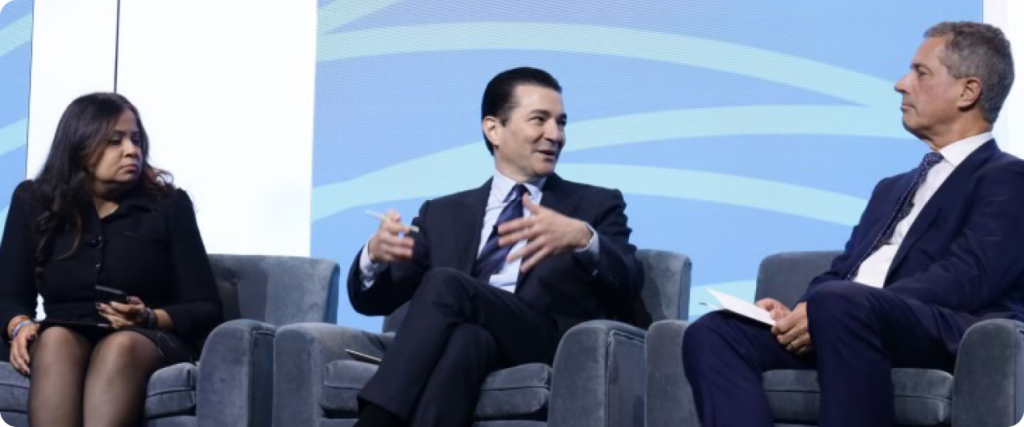
Scott Gottlieb MD, Physician and former Commissioner of the Food and Drug Administration (2017-2019), spoke during the final Fireside Chat at the World Medical Innovation Forum. Gottlieb offered insights into GLP-1s and indicated concern about accessibility for all, given costs.
“In terms of the access issues, you’ve seen prices come down substantially,” Gottlieb said, “but they’re still just out of reach for many.”
As more drug companies release semaglutides, Gottlieb’s hope is that added competition will further drive down prices to help those who may be uninsured or underinsured for these drugs.
“What will really help accessibility is the development of a pill someday instead of injections,” he said.
Gottlieb also spoke about his upcoming book, The Miracle Century, scheduled for release in summer 2025. The book centers around cell therapies and ongoing efforts to find cures for numerous diseases.
“Medical innovation is not a ‘eureka’ moment.” he said. “I think we need to understand as we invest in science and innovation how long it takes and how expensive it is.”
Despite the time and cost, Gottlieb highlighted the importance of investigating new gene and cell therapies. He said he’s now seeing scientists returning to key foundational work to further understand these therapies, something critical for making therapies mainstream and accessible.
“After you understand the biology, the tools for [FDA] approval will come,” he added.
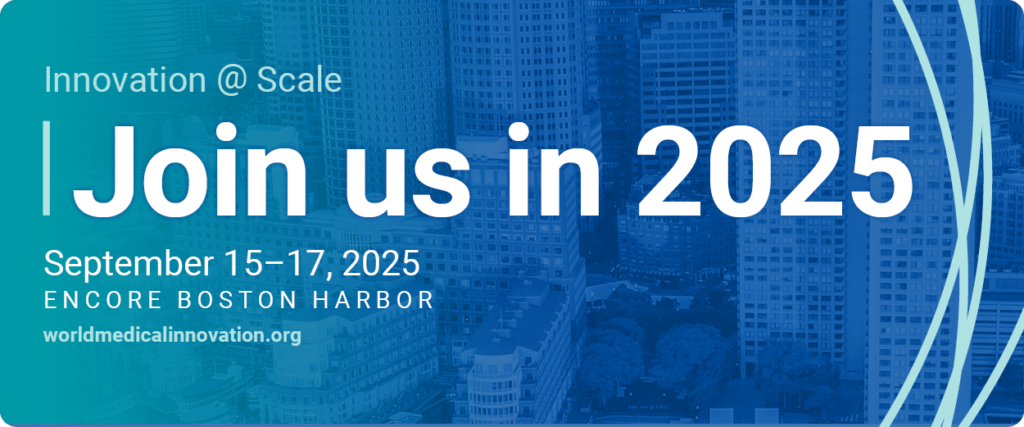
Thank you for an innovative three days!
To catch up on everything you might have missed, you can watch all the session recordings from the 2024 World Medical Innovation Forum. Simply visit our agenda page for access.
Save the date for Innovation @ Scale at the 11th Annual World Medical Innovation Forum. Stay tuned for updates on our website.
Read Day 1 recap.
Read Day 2 recap.